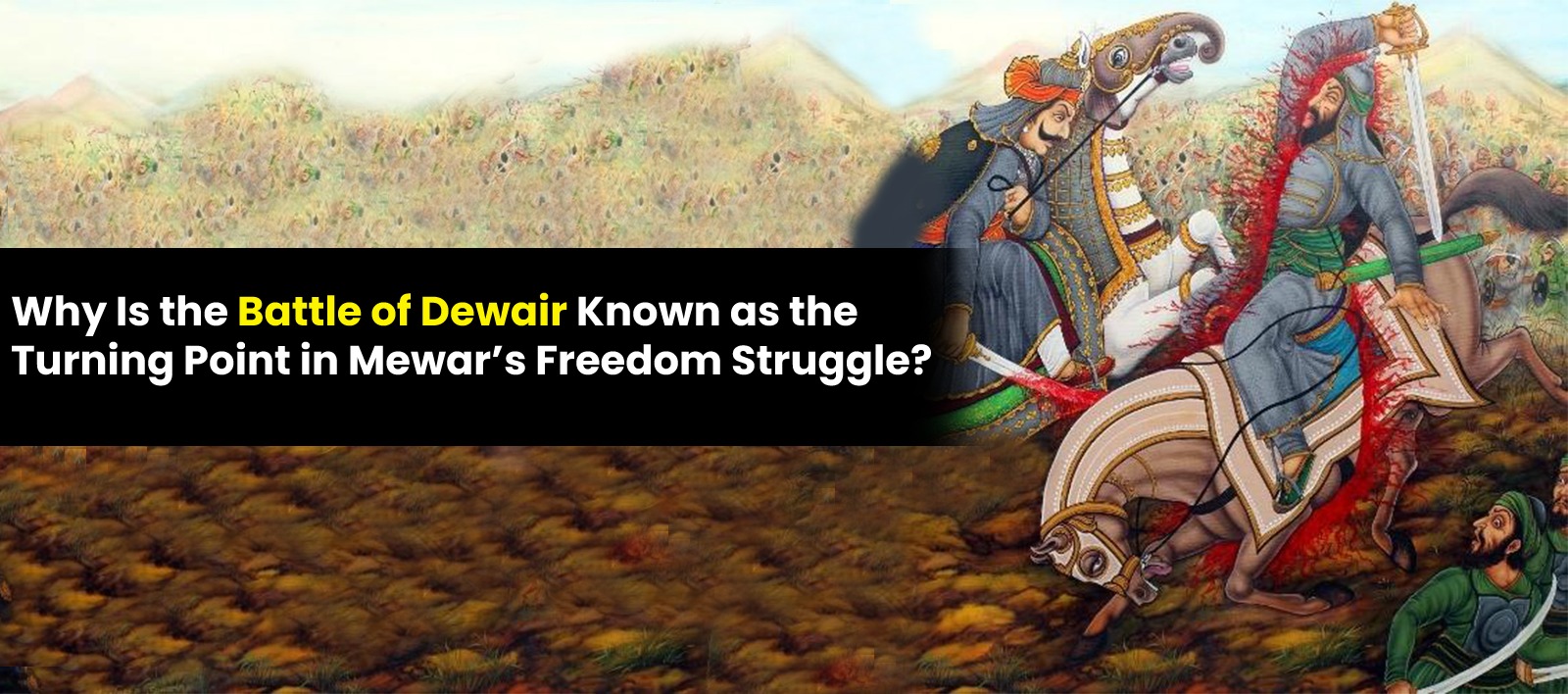Why Is the Battle of Dewair Known as the Turning Point in Mewar’s Freedom Struggle?
The Battle of Dewair in 1582 is remembered as one of the most significant turning points in Indian history, especially for the kingdom of Mewar. While the Battle of Haldighati is often popularly remembered, it is Dewair that truly marked Maharana Pratap’s resurgence against Mughal dominance. This wasn’t just a military victory—it was the reclaiming of lost honor, territory, and spirit. The battle reflects the peak of Maharana Pratap’s resolve and valor in the face of immense adversity, and continues to inspire patriotic pride, scholarly interest, and historical inquiry alike.
What Actually Happened During the Battle of Dewair in 1582?
Background: Mewar’s Continued Resistance
After the intense Battle of Haldighati in 1576, Maharana Pratap never accepted Mughal supremacy. Despite suffering significant losses, he chose to live in the forests and mountains, reorganizing his forces and constantly harassing Mughal positions using guerrilla tactics. His resolve never wavered—freedom was his sole aim.
The Rise of Dewair
Dewair, located in the Aravalli ranges, became a key Mughal outpost. Control over Dewair meant control over strategic routes between Mewar and Marwar. Maharana Pratap understood that defeating the Mughal stronghold here was essential for the liberation of Mewar.
The Battle Unfolds
In 1582, Maharana Pratap launched a surprise attack on Dewair:
- His forces targeted Mughal outposts using hit-and-run tactics.
- His brother Shakti Singh played a crucial role by killing Mughal commander Sultan Khan.
- Within a short span, 36 Mughal military posts between Dewair and Gogunda were overtaken.
- The Mughal army, shocked and demoralized, retreated.
This clear and strategic victory in the Battle of Dewair marked the beginning of the Mughal withdrawal from Mewar.
Why Is Dewair Considered a Turning Point?
1. Psychological Blow to the Mughals
The loss of Dewair deeply impacted Mughal morale. Even Emperor Akbar refrained from launching a full-scale attack on Mewar after this.
2. Reclamation of Territory
With Dewair in hand, Maharana Pratap gradually restored control over significant parts of Mewar. He later made Chavand his new capital.
3. Inspired Regional Pride and Unity
This battle wasn’t just a strategic victory—it rekindled pride and confidence among the people of Mewar.
Guerrilla Warfare Strategy: Key to Success
Maharana Pratap was a pioneer of guerrilla warfare:
- He leveraged the geography of Mewar, using forests and hills as natural defenses.
- His troops would strike unexpectedly and vanish before Mughal reinforcements could arrive.
- This strategy exhausted the Mughal troops, lowering their will to fight.
In the Battle of Dewair, this strategy proved exceptionally effective, demonstrating how indigenous tactics could outsmart a numerically superior enemy.
Significance of Dewair’s Victory
- Dewair became the symbol of Mewar’s restored autonomy.
- The Mughals gradually lost control over the region.
- Maharana Pratap was able to focus on rebuilding Mewar with a capital at Chavand.
- Akbar never again attempted a major invasion of Mewar during Pratap’s lifetime.
Frequently Asked Questions (FAQs)
Q1. When did the Battle of Dewair take place?
The Battle of Dewair took place in 1582 between the forces of Maharana Pratap and the Mughal army.
Q2. Who were the main participants in the Battle of Dewair?
The main participants were Maharana Pratap of Mewar and the Mughal commander Sultan Khan.
Q3. Why is the Battle of Dewair considered more important than Haldighati?
Unlike the Battle of Haldighati, which was inconclusive, the Battle of Dewair was a decisive and clear victory for Maharana Pratap, marking the turning point in Mewar’s freedom struggle.
Q4. What happened after the Battle of Dewair?
Following the victory at Dewair, Maharana Pratap regained control over many parts of Mewar, established Chavand as his capital, and significantly weakened Mughal influence in the region.
Conclusion
The Battle of Dewair was much more than a war; it was a rebirth of Mewar’s identity. Maharana Pratap not only regained land but also re-established the spirit of resistance and righteousness. His life teaches that with unyielding resolve, strategic brilliance, and a moral compass, even the greatest adversities can be overcome.
Today, the story of Dewair continues to echo in the valleys of the Aravallis and in the hearts of every Indian who values freedom, courage, and honor.


